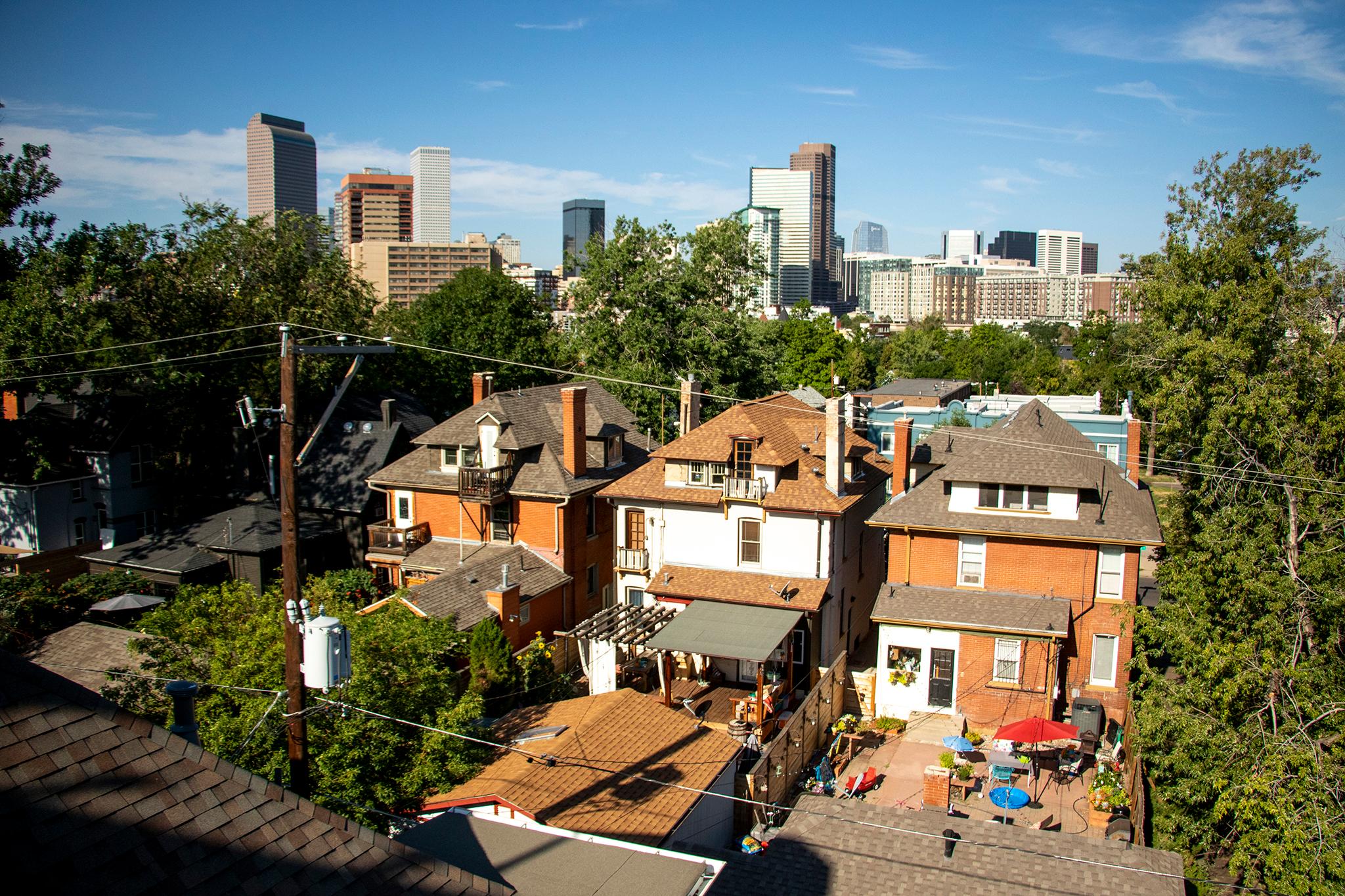If you thought grocery store shelves were barren in January, check out the housing market.
"There were only 1,477 active properties on the market in the entire Denver metro area at the start of 2022," wrote Andrew Abrams, the chair of the Denver Metro Area Realtors Market Trends Committee, in the organization's February Market Trends Report. "That represents 11,175 fewer houses on the market than normal."
There were 48.88% fewer homes on the market in January 2022 than in January 2021, according to the report. Prices, on the other hand, were up 18.68%.
Real estate continues to be a booming industry in the metro area -- especially in the past couple of years. In 2020 and 2021, Denver's real estate market grew by $208 billion, the report stated. It grew by $212.1 billion the decade prior.
With interest rates lower than usual, more people have been applying for mortgages.
But as the Federal Reserve is likely hiking interest rates in the weeks and months to come to combat inflation, many investors and homebuyers alike are scrambling for low-interest mortgages and jumping into the already competitive market, driving up prices and lowering available housing.
In the wake of the Marshall Fire, DMAR is anticipating the housing market to get even tighter.
Bidding wars are raging, and realtors are leaning on all sorts of tricks to ensure their clients find homes in a market with such limited housing stock. Some buyers are waving inspection and repair requests to sellers to make offers more enticing.
Mala Vyas, an agent with Greyrock Realty who's been working on the Front Range and metro area for the past six years, told us she's heard of buyers losing out in bidding wars to people paying $100,000 over the asking price.
She's seeing properties being shown 30 to 80 times.
"If I can, I get intel from the other agent, so I'm not wasting his or her time, or my time, or my client's time or the seller's time," she said. "We may not consider putting in an offer if it's already out of what my clients are comfortable with or what their budget is.
"What I'm seeing is there is a lot of demand and not a lot of supply," she added.
Last year, Vyas saw a lot of people temporarily give up on their home buying dreams, hoping the market would cool off. Yet she continues to be hopeful that clients who are qualified for loans can find a home in the metro area -- even if it's not exactly where they pictured living.
"What really worries me are my buyers who are just barely able to qualify," she said. "I'm nervous. In this rising interest rate climate, I'm nervous. For a lot of my clients, a $300 a month increase because of interest rates is not going to be a deal-breaker for them. It's not going to be fun. They won't like it. But it won't prevent them from getting into the market and purchasing a home. But it will prevent my buyers who are on the lower price point, because for them, a $300 increase, or whatever the increase is, will price them out."
Despite the competitive market, Vyas finds that most buyers and sellers are trying to behave ethically, and sometimes it's the more sympathetic person -- not the one with the highest offer -- that winds up with the deal.
"Most people are nice and kind and try to make a transaction like that," Vyas said. "They try to do right by each other."











